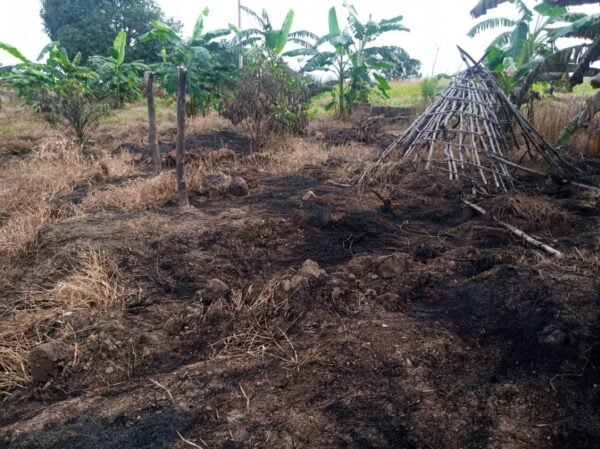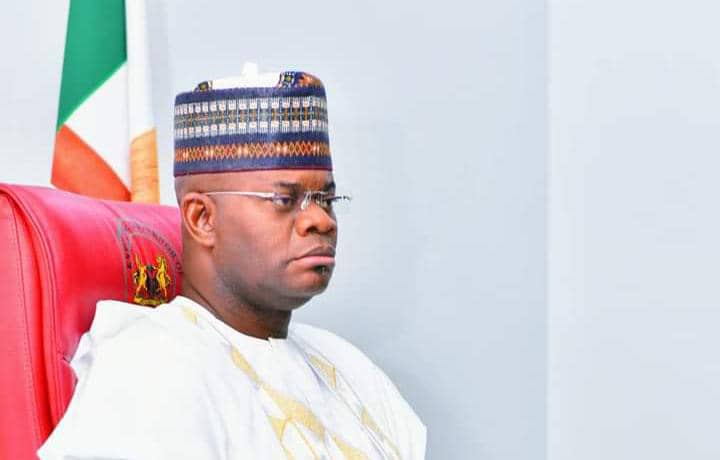A farmland destroyed as a result of insecurity
BY LUKMAN SHOBOWALE
An assessment of Nigeria’s modern history, reveals that land administration in Nigeria has gone through major inflection points, pre-colonial, colonial and post-independence. During the pre-colonial period, the land tenure system can be described as customary land tenancy. Under this communal arrangement, land administration was under the control of families, community and village heads. The major drawback to this land administration system is that it was skewed, created barriers and alienated people who were willing to acquire land from landowners. The system was therefore not sustainable.
Following the colonisation of the then “Niger Area”, the customary land tenancy was longer tenable and was immediately replaced by the Treaty of Cession of 1861, which transferred land title to the British Crown as part of a broader social, political and economic objective of control and subjugation, at the time.
Down the line, the Treaty of Cession was repealed and replaced by the land proclamation ordinance 1900, which consolidated the outdated treaty, by conveying all land control to the high commissioner/governor-general. Other landmark legislation that came to life during this period also includes the Land and Native Rights Act of 1916, the State Lands Act of 1918 and the Town and Country Planning Act of 1947.
Advertisement
Following the nation’s independence in 1960, the Land and Native Rights Act of 1916 was replaced by the Land Tenure Law 1962, which was largely in effect in northern Nigeria. This land tenure system was heavily criticised for providing a different set of engagement for those who were considered “natives” and “non-natives”. While the Land Tenure Law 1962 governed the land administration system in northern Nigeria, southern Nigeria operated under a different set of arrangements which can be described as the private ownership of land.
The distinction created by the multiple land administration system in different parts of Nigeria immediately necessitated the need for government to consider a uniform land administration system that is comprehensive and inclusive. On March 29, 1978, the military administration of Olusegun Obasanjo, promulgated the Land Use Act 1978.
The Land Use Act 1978 was recognised as a landmark for vesting the control and administration of land in the hands of state governors who would hold the land in trust for the people. The act however had a provision that placed a burden of “responsibility” on the state governors by charging them with the responsible allocation of land. The purpose of such allocation is residential, agricultural, commercial, industrial or even economic activities. In addition to harmonising the land administration system, the act was also expected to check the spate of speculative purchases and ensure the redistribution of land, as a major economic resource.
Advertisement
Over the last 45 years, the Land Use Act 1978 has remained the regulatory and legal framework that governs land administration in Nigeria. It is attributed especially to democratising and harmonising the land administration system and control in every part of the country.
While the land use may have democratised the land tenure system in Nigeria, the act is heavily criticised for creating bureaucratic bottlenecks in land acquisition, barriers to access and putting excessive administrative control in the hands of the governors. The complex and bureaucratic process created by the act usually involves navigating multiple layers of government approvals, permits, and licenses. This is in addition to the fact that only state governors, majorly through the ministry of lands, can grant land approvals. The act is also criticised for its rigidity, and the lack of flexibility on the purpose it may or may not have been allocated, the restriction and overregulation have hindered the maximisation of land, for more than one purpose.
It is therefore believed that if Nigeria must make any dint of progress on closing the current housing gap, the first port of call is to review the Land Use Act, which has been criticised as outlandishly archaic and not in tandem with realities. It is also believed to be over-regulatory in approach, especially in the flexibility of the use of land and the total control it places in the hands of state governors.
I am pleased to equally note that the coming government is already clear on this demand, the Bola Tinubu renewed hope manifesto, explicitly notes that: “In conjunction with the national assembly and state governments, we will review and revise the Land Use Act. We need to streamline and rationalise the land conveyance process. In this way, we lower costs and delays and promote more efficient use of land. This more efficient allocation will bolster the housing industry and lower costs for investors and consumers”.
Advertisement
The key word here is the need to streamline the process, remove unnecessary bottlenecks, and government bureaucracy that does not support investment and introduce flexibility into the process. I would even go further also to advocate the need to decentralise the land administration to limit the excessive control of state governors to check abuse and indiscretion.
I have no doubt that reviewing the Land Use Act 1978 will open up the sector for investment, encourage private sector participation, improve home ownership and foster the redistribution of land, as a major economic resource.
Shobowale is the co-founder/CEO, Dukiya Investments Limited
Views expressed by contributors are strictly personal and not of TheCable.
Advertisement
Views expressed by contributors are strictly personal and not of TheCable.
Add a comment






